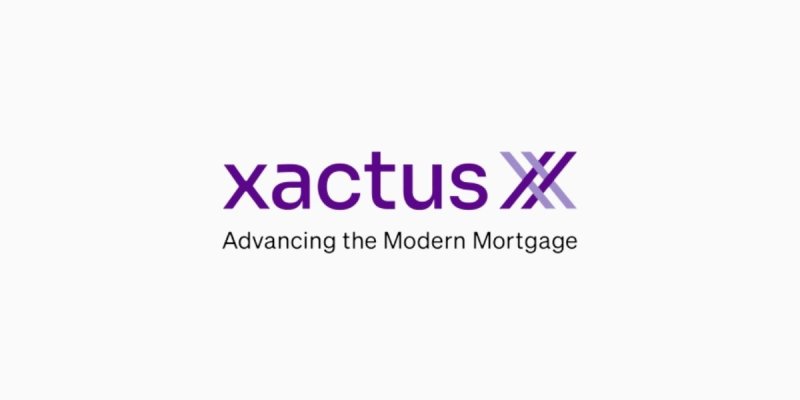
Q2’s decline in total mortgage balances – the first since 2015 – shows spring homebuying season lenders were banking on barely materialized.
- Fewer than 900,000 mortgage originations in the first quarter of 2023, a record low.
- Purchases made up 87% of first quarter origination volume as overall refinance volume fell 86% year over year.
- First quarter home equity loan (HELOAN) originations rose 18% in same time frame.
Mortgage origination volume continues its steady decline as Gen-Z borrowers find financial footing through increased use of credit cards and personal loans, according to a new report from TransUnion.
The credit reporting agency this morning released its Credit Industry Insights Report (CIIR) for the second quarter of 2023, which explores the latest credit trends for credit cards, unsecured personal loans, mortgages, and auto loans.
It came as no surprise to learn that mortgage origination volume fell to a record low of 899,000 units in the first quarter of 2023, down 59% from a year ago. It’s the second-largest annual decline on record. TransUnion said originations are viewed one quarter in arrears to account for reporting lag.
Ongoing declines in origination volume drove the first quarterly decline in total mortgage balances since 2015, as total mortgage balances fell from the first quarter’s record high of $12.04 trillion to $11.7 trillion in the second quarter. Still up 4.3% year over year, the quarterly decline is further proof that the spring homebuying season lenders were banking on barely materialized.
Purchases, meanwhile, made up 87% of the first quarter’s mortgage origination volume, with elevated mortgage rates continuing to drive borrowers away from refinances. “It remains to be seen if an expected moderation in mortgage rates in the second half of 2023 could potentially result in an uptick in refinance activity,” says Joe Mellman, senior vice president and mortgage business leader at TransUnion.
Overall refinance volume fell 86% year over year, to 121,000 units, and cash-out refinances fell 83% year over year, to a new record low of just 98,000 units.
“Given that the large majority of existing mortgages have rates below 6%,” he continues, “there is no incentive for homeowners to refinance their existing lower-than-current-rates mortgage and enter into a new, costlier mortgage.”
However, of those who did refinance at higher rates, TransUnion’s data show 81% chose to cash out, indicating that consumers remain interested in tapping their home equity. Home equity loan (HELOAN) originations experienced a healthy bump in the second quarter, rising 18% year over year, from 203,000 to 240,000 units. Though home equity line of credit (HELOC) originations fell 14% year over year, they remain at high levels, TransUnion reported.
Mortgage delinquencies displayed a slight increase year over year, with 60+ days-past-due (DPD) delinquencies rising 14% to 0.96% in the second quarter. This represents the fifth consecutive quarter of year-over-year increases, though delinquencies still remain below pre-pandemic levels.
“This remains a trend worth watching, particularly as we continue to observe the effects of inflation on consumers’ wallets,” says Mellman.
On the consumer credit front, bankcard balances reached a new record high of $963 billion in the second quarter of 2023, representing a year-over-year growth of 17.4%. Setting record highs for the fifth consecutive quarter, the total credit line rose to $4.5 trillion in the second quarter, an increase of nearly 10% year over year, though total utilization remained in check, below 22% for the quarter.
TransUnion’s CIIR arrives on the heels of the Federal Reserve Bank of New York’s reporting that credit card balances hit a record high of $1.03 trillion in the second quarter, marking a 4.6% quarterly increase.
In contrast to the first quarter of 2022, when subprime and near-prime borrowers drove growth, Liz Pagel, senior vice president of consumer lending at TransUnion, says it’s now prime plus and super prime borrowers driving increases in credit card originations and balances.
“Lenders have seemingly made a clear shift in acquisition strategy as, following two consecutive quarters of record originations, subprime’s share has declined significantly for the second quarter in a row, while super prime’s share has increased to that of pre-pandemic levels,” Pagel says.
Other findings from TransUnion’s report include:
- Total bankcard balances among Gen-Z consumers increased 51.9% year over year, and now stand at $55 billion, representing 5.7% of all balances. At the same time, even as lenders continue to tighten their underwriting, 50% of Gen-Z borrowers – compared to 32% for the entire population – are planning to apply for new credit or refinance existing credit within the next year.
- Total unsecured loan balances rose to $232 billion in the second quarter, up 21.1% year over year. Growth in balances occurred across all risk tiers, but was primarily driven by super prime and subprime borrowers who saw year over year increases of 39.5% and 25.9%, respectively.
- As new and used car inventories continue to rebound to pre-pandemic levels, the auto loan origination split has begun to revert to pre-pandemic norms, with new cars making up 42% of all cars financed in the second quarter. Meanwhile, monthly payments are up for both used vehicles (2.4%) and new vehicles (9.1%) year over year. The average monthly payment for a new car last quarter was $739, and for a used car, $532.
“It makes sense to see Gen Z consumers’ use of credit cards and personal loans increase relative to consumers as a whole as they age into financial independence,” said Michele Raneri, vice president of U.S. research and consulting at TransUnion. “Like the overall population, many Gen Z borrowers are facing the same financial challenges brought on by high-interest rates and inflation. As a result, they are tapping into these available credit products to help them cope with rising expenses and the tightening of their monthly budgets.”




